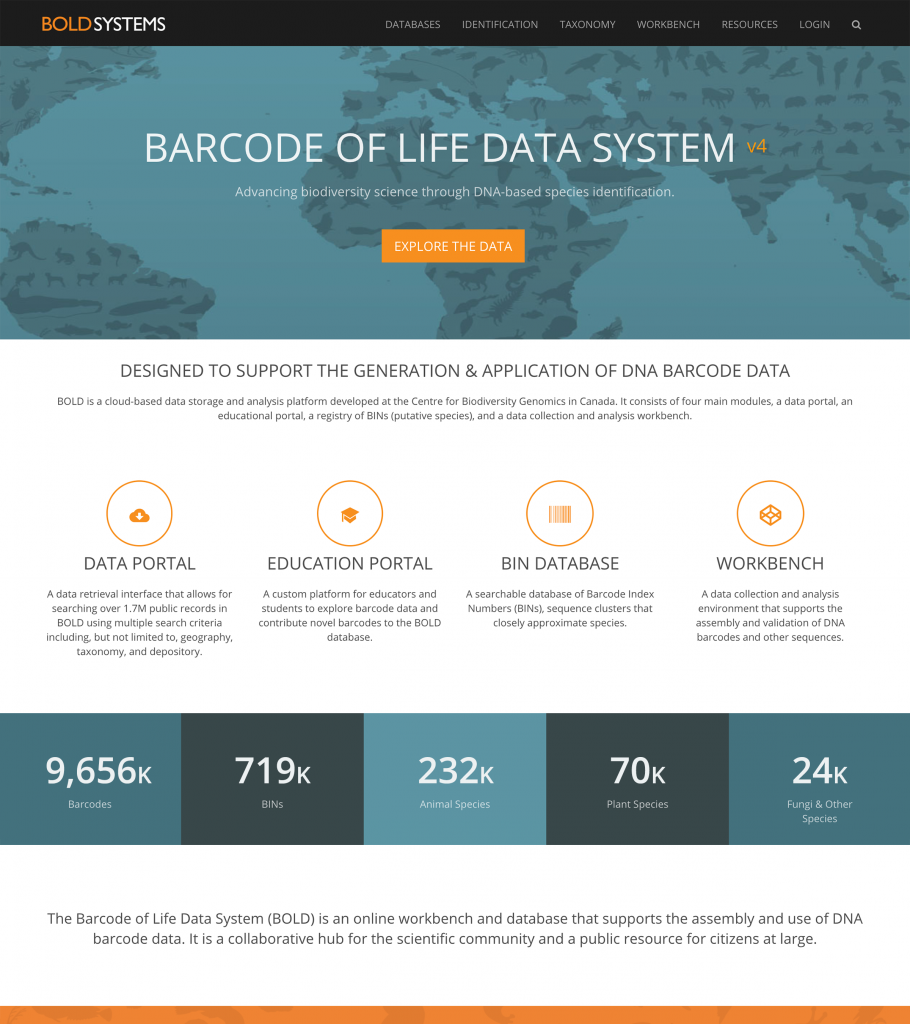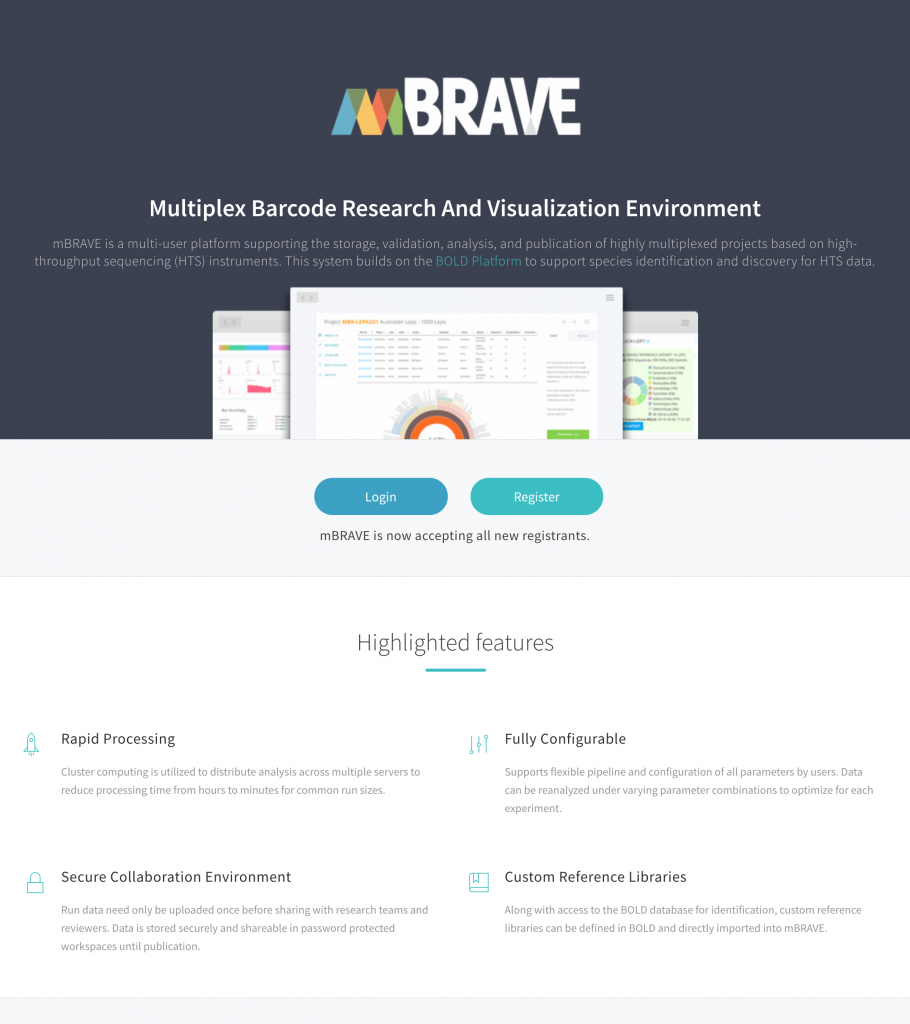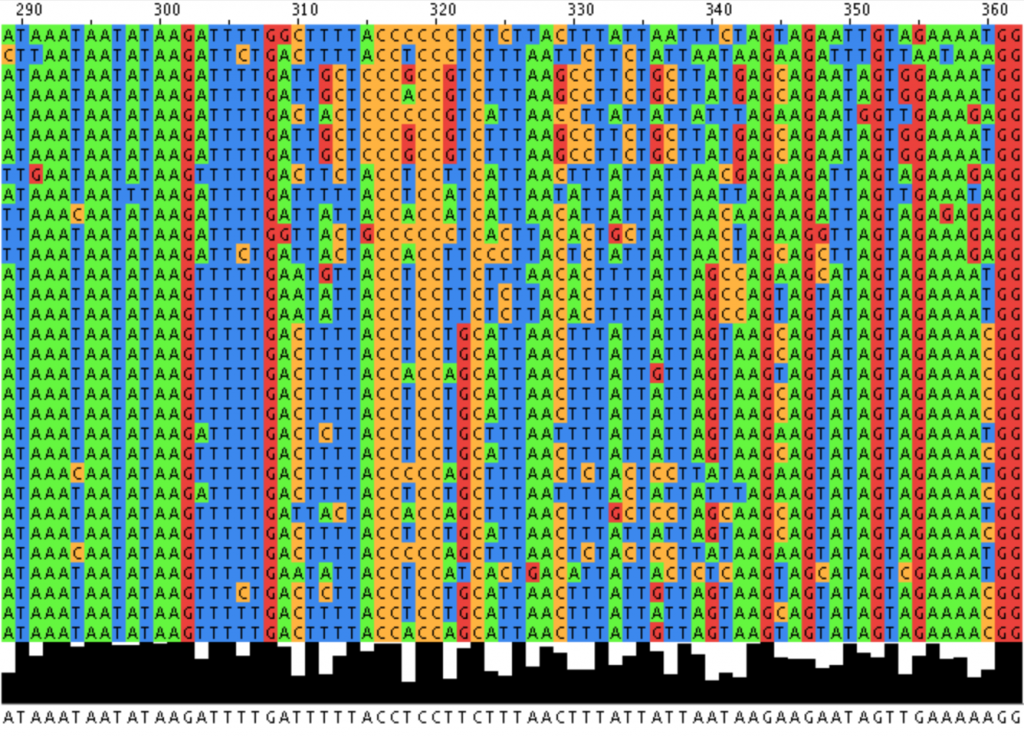Informatics
Driving bioinformatic innovation and supporting global DNA barcode collection and analysis
The Unit Manages
Barcode of Life Data System

A Collaborative Hub for the Scientific Community
The Barcode of Life Data System (BOLD) was launched in 2005 as a workbench and repository supporting a growing community of researchers focused on building a DNA barcode library for all eukaryotic life. BOLD has since been established as the authoritative source for DNA barcode data and an important part of the cyberinfrastructure for biodiversity research. It hosts 12M+ DNA barcodes representing 900K+ species, and provides over 30K specimen identifications provided per week.
High-Throughput Data Support

Multiplex Barcode
Research And Visualization Environment
Barcode Index Number (BIN) System

Algorithmic Taxonomy For a Digital World
Global Research Support

Supporting Large-scale Research Programs
The Informatics Unit provides data mining, data visualization and analytical support to researchers working on large volumes of data. The Data Management Team also provides validation, curation, and data capture services. We are responsible for maintenance, development, and expansion of BOLD, as well as the underlying server systems that are required to run it, and work to find innovative and integrative solutions for CBG’s hardware and software needs.

